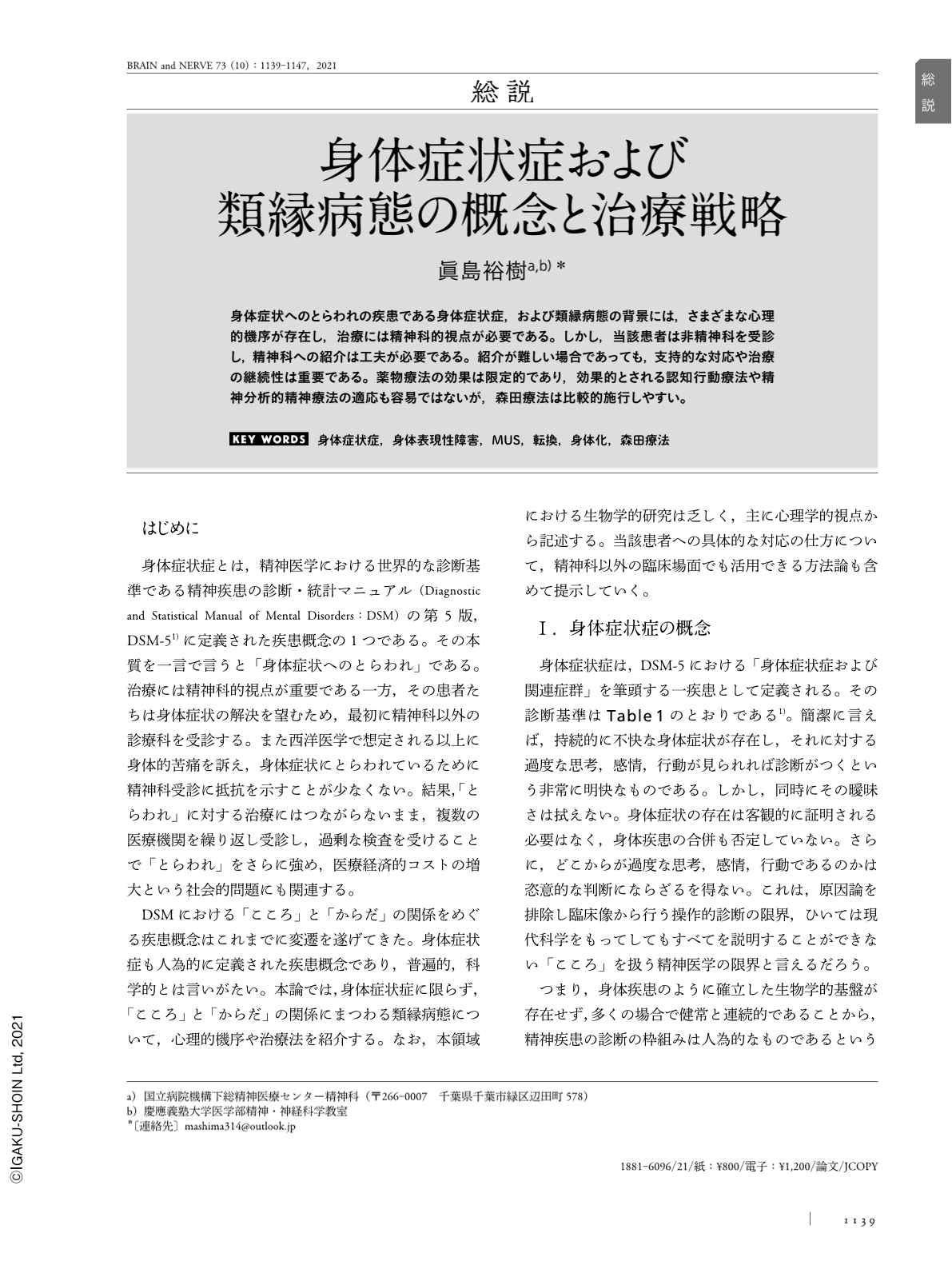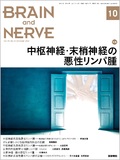Japanese
English
- 有料閲覧
- Abstract 文献概要
- 1ページ目 Look Inside
- 参考文献 Reference
- サイト内被引用 Cited by
身体症状へのとらわれの疾患である身体症状症,および類縁病態の背景には,さまざまな心理的機序が存在し,治療には精神科的視点が必要である。しかし,当該患者は非精神科を受診し,精神科への紹介は工夫が必要である。紹介が難しい場合であっても,支持的な対応や治療の継続性は重要である。薬物療法の効果は限定的であり,効果的とされる認知行動療法や精神分析的精神療法の適応も容易ではないが,森田療法は比較的施行しやすい。
Abstract
Somatic Symptom Disorder is a specific disorder that is extensively defined by the Diagnostic and Statistical Manual of Mental Disorders, Fifth edition (DSM-5). Although the diagnostic criteria for somatic symptom disorder has archived breakaway from mind-body dualism and simplification for physicians, it remains vague and universally unapplicable. Moreover, despite the DSM-5 removing etiology in diagnosis, there is still a need to determine the etiology for individualized patient treatment. In particular, patients with somatic symptom disorder and relative disorders have psychological pathologies, such as somatization and anxiety about illness, all of which require psychiatric treatment. However, these patients initially visit physicians, not psychiatrists, since their symptoms are somatic, and they are anxious about the possibility of a physical disease. As such, supportive attitude and continuous treatment are important, as they can be performed even without a psychiatric consultation. Furthermore, while the effectiveness of pharmacotherapy is limited for these disorders, psychotherapy has the possibility to bring about a fundamental resolution. Particularly, cognitive behavior therapy or psychoanalytic psychotherapy has been found to be effective; however, they require high motivation and take up much time from the patients. Fortunately, the Morita therapy is especially effective for patients who pay excessive attention to somatic symptoms or are hypochondriacal, which is applicable for outpatients using a comparatively short interview that can even be performed in nonpsychiatric clinical settings.

Copyright © 2021, Igaku-Shoin Ltd. All rights reserved.


